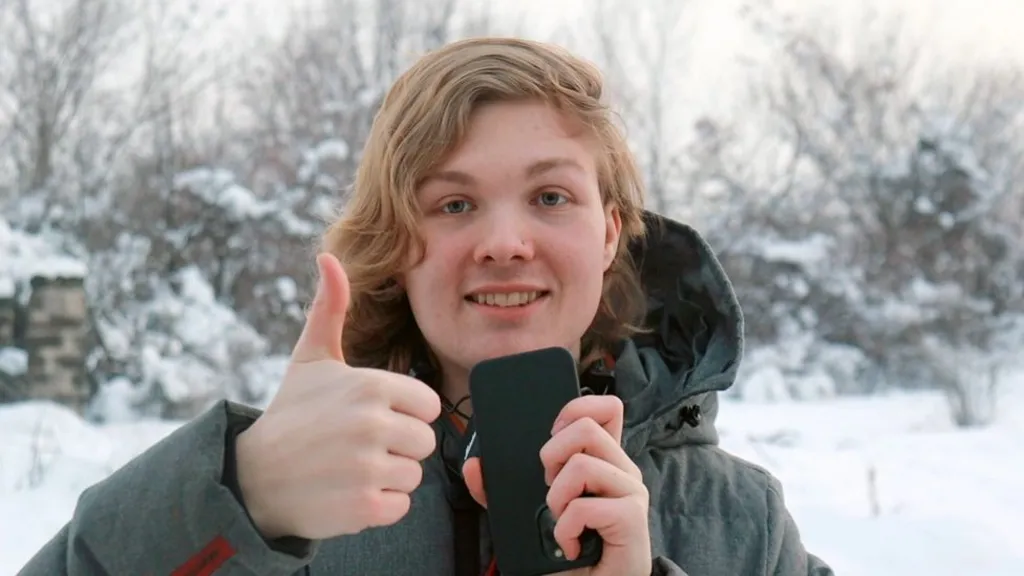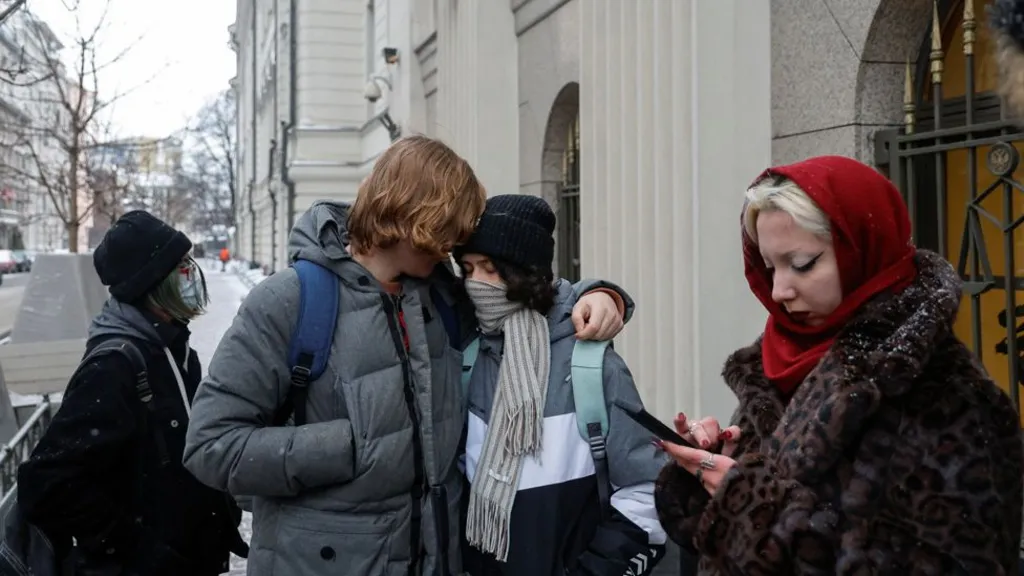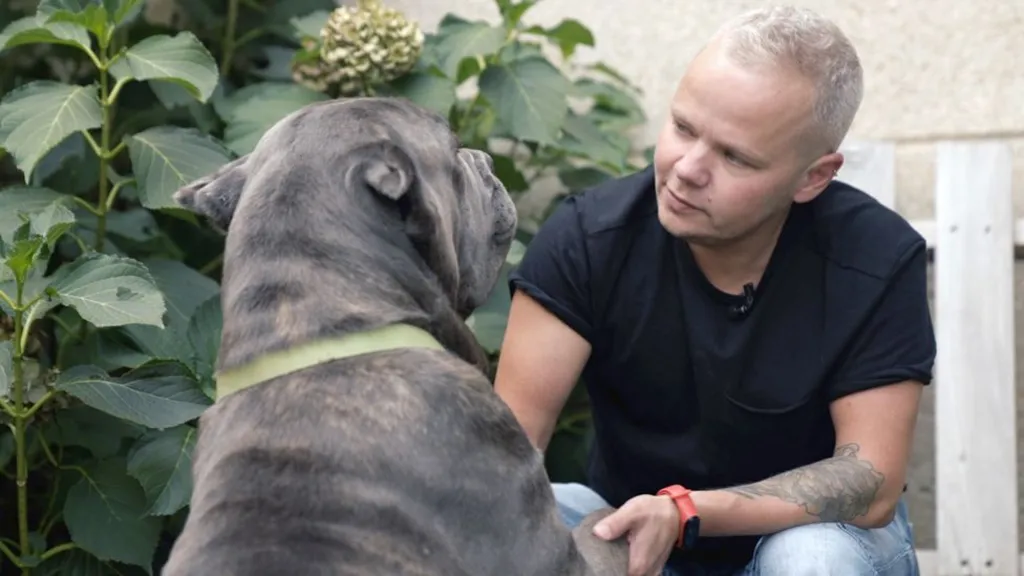Introduction
In a chilling narrative that unveils the harrowing experiences faced by transgender individuals in Russia, the story of Ada—a 23-year-old trans woman—sheds light on the severe repercussions of the country’s harsh treatment of LGBTQ+ communities. Ada’s journey from a seemingly routine trip to Novosibirsk to enduring the traumatic reality of conversion therapy centers illustrates the dire situation many transgender people face under the oppressive legislative and social climate in Russia. This detailed account not only explores Ada’s personal ordeal but also provides a broader context of the challenges confronting the transgender community amidst increasingly draconian laws.

Ada’s Ordeal: Tricked into Conversion Therapy
The Deceptive Invitation
In the summer of 2021, Ada was living what she thought was a normal life until a relative approached her with a seemingly benign request. The relative asked Ada to accompany them to Novosibirsk, ostensibly for a major heart surgery they were scheduled to undergo. Ada, trusting her relative, agreed to the trip, unaware of the dark twist awaiting her.
Upon arriving in Novosibirsk, Ada’s journey took an alarming turn. A man met them at the airport and, after a prolonged and tense car ride, abruptly stopped the vehicle. In a shocking betrayal, Ada’s relative exited the car, leaving her with the driver, who immediately confiscated Ada’s smartwatch and phone. The driver then coldly informed her that they were going to “cure” her of her “perversion.”
The Grim Reality of Conversion Therapy
Ada’s new reality was far from what she had anticipated. She was taken to a remote farm in Siberia, where she was confronted with a grim and disturbing experience. A man presented her with a knife and a pig, instructing her to “cut it off” as a means to understand what castration entails. This harrowing moment was designed to instill fear and force Ada into compliance with the conversion therapy program.
Faced with this brutal choice, Ada experienced a panic attack and refused to follow through with the demands. The situation highlighted the extreme measures used by those running these conversion therapy centers to intimidate and control individuals seeking to undergo such interventions.
Life Inside the Conversion Therapy Center
During her time at the center, Ada endured a series of harsh and dehumanizing conditions. She was coerced into taking testosterone, subjected to religious prayers, and forced to perform manual labor, such as chopping wood. The center’s environment was deliberately isolating and punitive, designed to break down her sense of self and force her into conforming to their ideology.
Ada’s realization of her prolonged confinement came when a parcel of warm clothes arrived, indicating that her stay would extend beyond the initially promised duration. This moment of clarity was a turning point for Ada, marking the beginning of her determined efforts to escape the grim situation she found herself in.
The Escape and Aftermath
After enduring months of captivity, Ada finally found a glimmer of hope. She discovered a phone left carelessly in the center and used it to contact the police. The intervention of law enforcement was pivotal, as officers were dispatched to the center and confirmed that Ada was being held against her will. The authorities’ involvement led to Ada’s release, but the trauma of her experience remained deeply etched in her memory.
The conversion therapy center vehemently denied any involvement in such programs when contacted by media outlets. Ada’s relative, who had orchestrated the deceptive trip, did not respond to requests for comment, leaving Ada’s narrative as one of many untold stories of abuse and betrayal.
The Broader Context: Transgender Rights in Russia
Erosion of Human Rights
Ada’s traumatic experience is part of a broader pattern of human rights violations faced by transgender individuals in Russia. The country’s legislative changes and increasing intolerance towards LGBTQ+ communities have led to significant erosion of basic rights and freedoms for transgender people.
According to UN independent expert Graeme Reid, Russia’s political strategy involves targeting vulnerable minorities, including the transgender community, as part of a broader agenda. This strategy has systematically deprived transgender individuals of their rights to a legal identity and access to essential healthcare services.
Legislative Changes and Their Impact
In July 2023, Russia enacted a law banning gender reassignment surgery, marking a severe restriction on the rights of transgender individuals. This legislation not only halted the process of changing personal details on official documents but also left many people, like Ada, scrambling to finalize their legal identities before the law took effect.
The legislative changes have had profound implications for those seeking to transition. Ada was one of the last individuals to have her name officially changed before the new law’s implementation, a situation that highlights the urgency and stress faced by transgender people in navigating a rapidly changing legal landscape.
Political Climate and Anti-LGBT Sentiments
The climate of intolerance towards LGBTQ+ individuals in Russia has been further exacerbated by political rhetoric and actions. President Vladimir Putin’s vocal opposition to LGBT rights and his characterization of transgender individuals as “transformers or trans-something” reflect the broader societal attitudes fostered by the government.
The end of 2023 saw the Russian justice ministry declaring the “international LGBT movement” an extremist organization, despite the non-existence of such an entity. This new ruling criminalizes any support for what is now deemed “extremist activity,” with severe penalties including lengthy prison sentences and fines for displaying symbols associated with LGBTQ+ rights.

Personal Stories of Exile and Struggle
Ada’s escape from Russia was a desperate measure to avoid further persecution under the new laws. She relocated to Europe, where she continues to offer support to other transgender individuals seeking refuge. Her story is a testament to the resilience of those who endure persecution and seek safety in more accepting environments.
Francis, who left Russia in 2018, reflects on his experiences with a mix of relief and sadness. Despite his transition and efforts to live authentically, he faced severe backlash from local authorities, resulting in the removal of his children from his care. Francis and his family found solace in Spain, though the challenges of living abroad as a Russian continue to complicate their lives.

Ally, who moved to Georgia in 2022, shares a personal journey of self-discovery and transition. Despite the political motivations for leaving Russia, Ally’s experience illustrates the broader impact of anti-LGBT laws on personal relationships and identity. The inability to update crucial documents and the ongoing pressures of being a Russian expatriate further compound the difficulties faced by transgender individuals.

Conclusion: A Call for Empathy and Change
Ada’s story, along with those of Francis and Ally, highlights the urgent need for empathy and systemic change in the treatment of transgender individuals in Russia. The harsh realities of conversion therapy, the erosion of fundamental rights, and the oppressive political climate underscore the challenges faced by the LGBTQ+ community in a country where acceptance and safety remain out of reach for many.

As the world watches, it is essential to acknowledge the profound struggles of individuals like Ada and support efforts to create environments where all people, regardless of their gender identity, can live without fear and discrimination. The stories of resilience and courage amid adversity serve as a powerful reminder of the ongoing fight for human rights and dignity.


